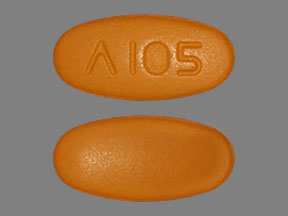
Pregabalin ER Coupons & Savings Card – Discount Prices from $36.65
Generic for: Lyrica cr
My prescription
Edit
165MG, Pregabalin ER (30 Tablet Extended Release 24 Hours)
Select pharmacy

CVS
$36.65
COUPON PRICE
Albertsons
$79.16
COUPON PRICE
Walgreens
$87.90
COUPON PRICE
Walmart
$490.91
COUPON PRICEPregabalin ER savings card
Show this card to your pharmacist
CVS
$36.65
BIN
ID
PCN
GRP
019876
LHD2DC7FFE
CHIPPO
LHX
Powered by
More prescriptions for postherpetic neuralgia
More prescriptions for postherpetic neuralgia
Price history for Lyrica Cr (brand) & Pregabalin ER (generic)
30 Tablet Extended Release 24 Hours, 165MG
Average retail price for Lyrica Cr
Average retail price for Pregabalin ER
Average SaveHealth price for Pregabalin ER
Our price history data is based on aggregated prescription data collected from participating pharmacies in America. Our prescription data updates daily to reflect the latest price changes. If you notice a missing data point, it means there wasn't sufficient data available to generate a monetary value for that date.
We analyzed Pregabalin ER prices for (165MG, 30 Tablet Extended Release 24 Hours) over the last 12 months. The average retail price was $558.60, while the average price using the SaveHealth discount card was $92.13. That's a savings of approximately 83.51% when using our Pregabalin ER coupon.
Compared to the generic version, Lyrica Cr had an average price of $615.50 over the same time period. With the SaveHealth savings card, Pregabalin ER is 85.03% cheaper on average than Lyrica Cr.
*Retail prices are based on pharmacy claims data, and may not be accurate when we don't have enough claims.
Pregabalin ER dosage forms
Dosage Quantity Price from Per unit 82.5MG 30 Tablet Extended Release 24 Hours $42.64 $1.42 82.5MG 45 Tablet Extended Release 24 Hours $54.80 $1.22 82.5MG 60 Tablet Extended Release 24 Hours $66.97 $1.12 82.5MG 90 Tablet Extended Release 24 Hours $99.31 $1.10 82.5MG 120 Tablet Extended Release 24 Hours $123.64 $1.03 165MG 30 Tablet Extended Release 24 Hours $36.65 $1.22 165MG 7 Tablet Extended Release 24 Hours $22.58 $3.23 165MG 28 Tablet Extended Release 24 Hours $35.42 $1.26 165MG 60 Tablet Extended Release 24 Hours $55.00 $0.92 165MG 90 Tablet Extended Release 24 Hours $81.34 $0.90
| Dosage | Quantity | Price from | Per unit |
|---|---|---|---|
| 82.5MG | 30 Tablet Extended Release 24 Hours | $42.64 | $1.42 |
| 82.5MG | 45 Tablet Extended Release 24 Hours | $54.80 | $1.22 |
| 82.5MG | 60 Tablet Extended Release 24 Hours | $66.97 | $1.12 |
| 82.5MG | 90 Tablet Extended Release 24 Hours | $99.31 | $1.10 |
| 82.5MG | 120 Tablet Extended Release 24 Hours | $123.64 | $1.03 |
| 165MG | 30 Tablet Extended Release 24 Hours | $36.65 | $1.22 |
| 165MG | 7 Tablet Extended Release 24 Hours | $22.58 | $3.23 |
| 165MG | 28 Tablet Extended Release 24 Hours | $35.42 | $1.26 |
| 165MG | 60 Tablet Extended Release 24 Hours | $55.00 | $0.92 |
| 165MG | 90 Tablet Extended Release 24 Hours | $81.34 | $0.90 |
| 330MG | 5 Tablet Extended Release 24 Hours | $21.70 | $4.34 |
| 330MG | 14 Tablet Extended Release 24 Hours | $29.66 | $2.12 |
| 330MG | 30 Tablet Extended Release 24 Hours | $42.64 | $1.42 |
| 330MG | 60 Tablet Extended Release 24 Hours | $66.97 | $1.12 |
| 330MG | 90 Tablet Extended Release 24 Hours | $99.31 | $1.10 |
